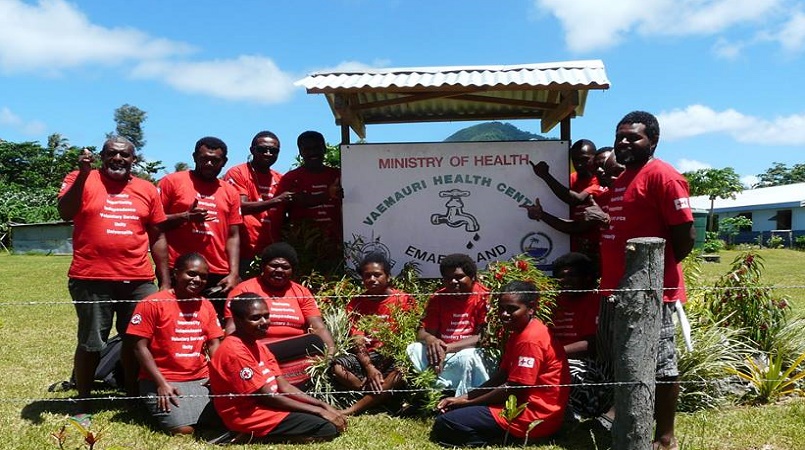
More than 4,000 pamphlets and 200 posters have been printed as part of Vanuatu Red Cross efforts to fight the dengue outbreak in the country.
The Health Coordinator, Sandrine Benjimen said, “These explain dengue symptoms and when to get treatment. They also tell people how they can help stop the spread of dengue. Along with other activities, disseminating information is an important part of changing people’s behaviour.”
In December 2016, the local Ministry of Health established a National Dengue Task Force (NDTF) and began an Emergency Rapid Response to tackle the outbreak.
The Vanuatu Red Cross website says the plans included communicating to the public about ways to prevent and treat dengue fever.
Community mobilisation was is also an important strategy being used by the Ministry of Health for the purpose of organising communities to work together to eliminate mosquito breeding sites.
In January, the Ministry of Health requested Vanuatu Red Cross Society for assistance.
“The International Federation of Red Cross and Red Crescent Societies (IFRC) provided technical support during the design phase of the dengue Emergency Rapid Response Project,” says IFRC health delegate Angus Walker.
“It also released an emergency funds to support a three-month operation lasting from January 21st until April 26th.” Working closely with the Ministry of Health, the Red Cross implemented the project in 15 communities and nine schools in Malekula, and ten communities and one school in Emae.
Denny Manvoi, conducted several workshops in dengue hotspots to train volunteers ahead of a dengue awareness and response campaign. Volunteers were given copies of the IFRC ZDC (Zika, dengue and chikungunya) Prevention Toolkit, which had been adapted to focus on dengue and translated into Bislama.
The three-month dengue campaign began shortly afterwards, focusing on mass communication and community mobilisation.
Before initiating the campaign, Vanuatu Red Cross worked closely with local community leaders and church elders to gain their support, which would be vital for ensuring the campaign had the full backing of the local community. After all, the awareness campaign is very people oriented, involving door-to-door visits to speak with families and working with schools.
“We’re working in schools to educate students on dengue, teaching them about the mosquito life cycle, disease transmission, larval habitats and control measures,” Sandrine says. She says the toolkit also provides a range of games and activities that help to make the learning fun and interactive.
Photo by Vanuatu Red Cross
